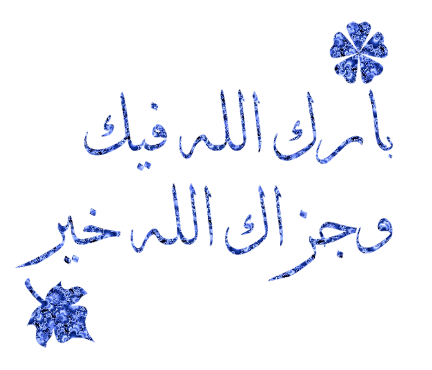
The virtue of fasting six days of Shawwaal
7859
Question
What is the ruling on fasting six days of Shawwaal? Is it waajib (obligatory)?
Answer
Praise be to Allah.
Fasting six days of Shawwaal after the obligatory fast of Ramadaan is Sunnah Mustahabbah, not waajib.
It is recommended for the Muslim to fast six days of Shawwaal, and in this there is great virtue and an immense reward. Whoever fasts these six days will have recorded for him a reward as if he had fasted a whole year, as was reported in a saheeh hadeeth from the Prophet (peace and blessings of Allaah be upon him).
Abu Ayyoob (may Allaah be pleased with him) reported that the Messenger of Allaah (peace and blessings of Allaah be upon him) said:
“Whoever fasts Ramadaan and follows it with six days of Shawwaal, it will be as if he fasted for a lifetime.”
(Narrated by Muslim, Abu Dawood, al-Tirmidhi, al-Nisaa’i and Ibn Maajah).
The Prophet (peace and blessings of Allaah be upon him) explained this when he said:
“Whoever fasts for six days after (Eid) al-Fitr has completed the year:
(whoever does a good deed (hasanah) will have ten hasanah like it).” According to another report:
“Allaah has made for each hasanah ten like it, so a month is like fasting ten months, and fasting six days completes the year.”
(Al-Nisaa’i and Ibn Maajah. See also Saheeh al-Targheeb wa’l-Tarheeb, 1/421).
It was also narrated by Ibn Khuzaymah with the wording:
“Fasting for the month of Ramadaan brings the reward of ten like it, and fasting for six days brings the reward of two months, and that is the fasting of the whole year.”
The Hanbali and Shaafa’i fuqaha’ explained that fasting six days of Shawwaal after fasting Ramadaan makes it as if one has fasted for an entire year of obligatory fasts, because the multiplication of the reward applies even to naafil fasts, because each hasanah brings the reward of ten like it.
Another of the important benefits of fasting six days of Shawwaal is that is makes up for any shortfall in a person's obligatory Ramadaan fasts, because no one is free of shortcomings or sins that have a negative effect on his fasting. On the Day of Resurrection, some of his naafil deeds will be taken to make up the shortcomings in his obligatory deeds, as the Prophet (peace and blessings of Allaah be upon him) said:
“The first thing for which people will be brought to account on the Day of Resurrection will be their salaah (prayer). Our Lord, may He be glorified and exalted, will say to His angels – although He knows best –
‘Look at the salaah of My slave, whether it is complete or incomplete.’ If it is perfect, it will be recorded as perfect, and if something is lacking, He will say, ‘Look and see whether My slave did any voluntary (naafil) prayers.’ If he did some voluntary prayers, [Allaah] will say, Complete the obligatory actions of My slave from his voluntary actions.’ Then all his actions will be dealt with in a similar manner.”
(Narrated by Abu Dawood).
And Allaah knows best
https://islamqa.info/en/answers/7859/the-virtue-of-fasting-six-days-of-shawwaal
Is Shawwal Fasting Compulsory?
Fasting in Shawwal is not compulsory, but it is highly recommended. Muslims are encouraged to fast for six days during the month of Shawwal, as it is considered to be a way of earning additional rewards from Allah (SWT) for the good deeds done during Ramadan.
Fasting six days of Shawwal after the obligatory fast of Ramadan is Sunnah Mustahabbah, not wajib. It is recommended for the Muslim to fast six days of Shawwal , and in this there is great virtue and an immense reward.
What Are The 6 Days Of Shawwal?
The six days of Shawwal are the six days that follow the Eid al-Fitr festival. Muslims are encouraged to fast during these six days as it is believed that the reward for fasting during this period after Ramadan is equivalent to fasting for the entire year.
Can you fast any 6 days of Shawwal?
Yes, Muslims can fast any six days of Shawwal. It is not necessary to fast for six consecutive days. The six days can be spread out throughout the month of Shawwal as per one’s convenience.
Why do we fast six days of Shawwal?
Fasting for six days during the month of Shawwal is considered to be a way of earning additional rewards from Allah (SWT) for the good deeds done during Ramadan. It is believed that the reward for fasting during this period is equivalent to fasting for the entire year.
What are the 3 white days of Shawwal?
The three white days of Shawwal are the 13th, 14th, and 15th days of the month of Shawwal.
What is the reward of fasting 6 days of Shawwal?
The reward for fasting six days during the month of Shawwal is believed to be equivalent to fasting for the entire year. This is because every good deed is multiplied by ten during Ramadan, and fasting for six days during Shawwal is equivalent to fasting for 60 days, which is the same as fasting for two months.
Therefore, the reward for fasting during these six days is equivalent to fasting for the entire year.
Some scholars expounded that as each good deed is ten folds of the deed, so Ramadan, which is a month, will be ten months, and the six days (of Shawwal) will be sixty days, which will be two months.
Can you fast Shawwal on Monday or Thursday?
Yes, there is nothing wrong fasting the six days of Shawwal on Mondays and Thursdays, and there will be recorded for you the reward of fasting the six days (of Shawwal) and of fasting on Mondays and Thursdays.
Shaykh Muhammad ibn ‘Uthaymin (may Allah have mercy on him) said:
“If it so happens that the fasting of these six days of Shawwal is done on Mondays and Thursdays , then the person will attain the reward of fasting on a Monday with the intention of attaining the reward for fasting the six days , and the intention of attaining the reward for fasting on a Monday or Thursday, because the Prophet (blessings and peace of Allah be upon him) said:
“Actions are but by intentions, and each person will have but that which he intended.”
From IslamQA
Al-Bukhaari (may Allaah have mercy on him) said: Chapter: Fasting on the day of al-Fitr.
Then he narrated (1992) that Abu Sa’eed (may Allaah be pleased with him) said: The Prophet (peace and blessings of Allaah be upon him) forbade fasting on the day of al-Fitr and al-Nahr.
Based on this, the day of al-Fitr is just one day, on which it is haraam to fast, As for the second and third days of Shawwaal, it is not haraam to fast those days; it is permissible to fast it to make up a missed Ramadaan fast or as a voluntary fast.
How many days in Shawwal?
There are 29 or 30 days in the month of Shawwal like any other Islamic months











